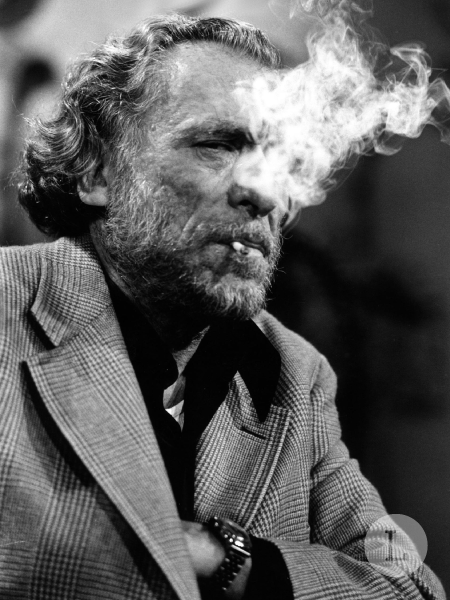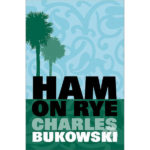Women by Charles Bukowski is a novel that delves deep into the complexities of human relationships and emotions, specifically the emotions and experiences of men and women in their relationships. The novel follows the story of Henry Chinaski, a fictionalized version of the author himself, as he navigates his way through a series of relationships with various women.
BOOK INFO
version: CLASSIC, EBOOK, AUDIOBOOK
number of pages: 225
literary movement: COUNTERCULTURE
literary genre: SEMI-AUTOBIOGRAPHY
1st edition: 1978
SUMMARY
Set in the mid-20th century, the novel is a continuation of the themes explored in Post Office such as the struggles of the working-class, poverty, and the search for meaning in a meaningless world. The novel delves into the theme of relationships in a way that is raw, unvarnished, and often brutal honesty, as well as its darkly humorous and often cynical look at life.
Throughout the novel, Chinaski is portrayed as a man who is struggling to find meaning and purpose in his life, and his relationships with women are a reflection of this struggle. The novel explores the theme of alienation and how it affects relationships, Chinaski’s relationships with women are often characterized by a sense of disconnection and isolation, which reflects the alienation that is present in the modern world. The novel also explores the theme of the search for meaning and how it is closely related to relationships, as Chinaski’s search for meaning and purpose is often intertwined with his relationships with women.
The novel also explores the theme of poverty and the struggle to make ends meet, as Chinaski is portrayed as a man who is struggling to survive on his low wages and is often forced to live in poverty. This theme is closely related to the theme of alienation, as Chinaski’s struggles with poverty add to his feelings of disconnection and isolation from society. The novel also examines the theme of societal expectations and gender roles. Chinaski’s relationships with women are often defined by societal expectations, and the novel explores how these expectations can lead to disappointment and dissatisfaction.
Bukowski’s writing style in Women is known for its raw, unvarnished, and often brutal honesty. He portrays the characters in a way that is relatable and true to life, with all their flaws and imperfections. The novel is also known for its darkly humorous and often cynical look at life, which adds depth and complexity to the story and the characters. The writing style and the themes of the novel make it a powerful and memorable work, and it is considered a classic of modern literature.
MAIN CHARACTERS
Henry Chinaski
A fictionalized version of the author himself. Chinaski is portrayed as a man who is struggling to make a living working dead-end jobs and trying to make a name for himself as a writer. He is also portrayed as a man who is searching for something more in his life, and is constantly trying to find a way to escape the monotony and alienation that surround him.
Jan
Chinaski’s first love. She is portrayed as a woman who is searching for something more in her life, and Chinaski’s relationship with her is a reflection of his own search for meaning and purpose.
Wanda
Chinaski’s second love. She is portrayed as a woman who is searching for something more in her life, and Chinaski’s relationship with her is a reflection of his own search for meaning and purpose.
Tammie
Chinaski’s third love. She is portrayed as a woman who is searching for something more in her life, and Chinaski’s relationship with her is a reflection of his own search for meaning and purpose.
The main character’s relationships with these women are central to the plot and themes of the novel. They serve as a reflection of Chinaski’s own struggles and search for meaning, and their interactions with each other help to flesh out the novel’s themes.
Goodness can be found sometimes in the middle of hell.
CHARLES BUKOWSKI
TOP 10 POINTS
- Women by Charles Bukowski explores the theme of relationships and how they can be complex, flawed, and ultimately unsatisfying.
- The novel also explores the theme of the search for meaning and purpose in one’s life, with Chinaski’s search for love and connection serving as a metaphor for his larger search for meaning.
- The novel explores the theme of the individual versus society and how societal expectations can be oppressive and limiting, particularly for women.
- The novel explores the theme of gender roles, and how the characters are affected by societal expectations.
- The novel explores the theme of addiction, Chinaski’s struggle with alcohol and his tendency to use women as a means of escape.
- The novel explores the theme of the struggles of working-class individuals, and how poverty and economic insecurity can affect relationships.
- The novel explores the theme of personal growth and self-discovery, through Chinaski’s experiences with women, the novel shows how the characters have to learn and grow in order to survive in this harsh and often hostile world.
- The novel features a cast of colorful and eccentric characters, which adds depth and complexity to the story and the themes.
- The novel uses a simple, direct, and unadorned style, dark humor, and a powerful setting to create a powerful and memorable story that is considered a must-read for those interested in the works of Charles Bukowski.
- The novel’s setting, Hollywood and the film industry, serves as a metaphor for the larger society and the novel uses it to comment on larger societal issues, particularly the treatment and portrayal of women.
In summary, Women is a novel that explores the complexities of human relationships and emotions through the story of Henry Chinaski, a fictionalized version of the author himself. The novel continues the themes explored in Post Office such as the struggles of the working-class, poverty, and the search for meaning in a meaningless world. It also delves into the theme of relationships, societal expectations and gender roles, and it is known for its raw, unvarnished and often brutal honesty, as well as its darkly humorous and often cynical look at life. It is considered a must-read for those interested in the works of Charles Bukowski.
ABOUT WRITER

Charles Bukowski was a German-American poet, novelist, and short story writer who is considered one of the most important and influential writers of the 20th century. He was born in Andernach, Germany on August 16, 1920, and immigrated to the United States with his family when he was two years old. The family settled in Los Angeles, where Bukowski grew up and spent most of his life.



